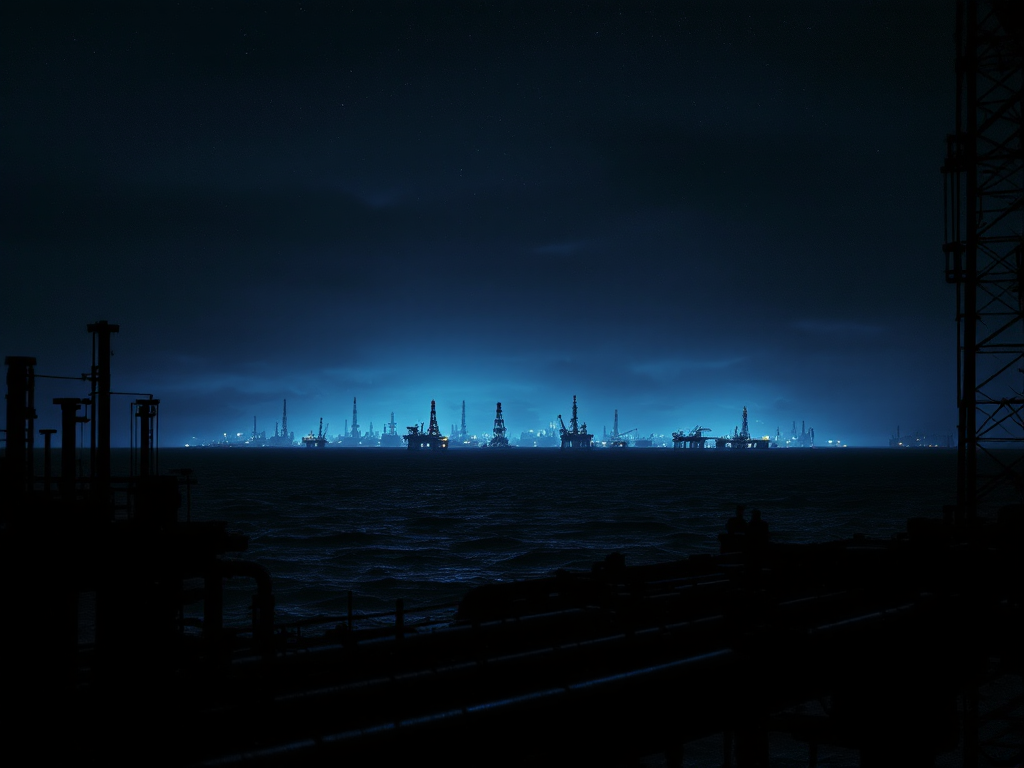Escalation in Attacks Despite Ceasefire Efforts
Tensions between Ukraine and Russia have sharply escalated recently, as Ukrainian forces reportedly increased drone and artillery strikes on Russian energy infrastructure. According to Russia’s defense ministry, Ukrainian strikes targeted 14 Russian energy installations within a 24-hour period, breaching a ceasefire facilitated by the United States. The installations are believed to have sustained considerable damage, underscoring the fragility of the recently brokered peace efforts. Neither Ukrainian defense authorities nor President Zelensky’s administration has officially confirmed or denied these allegations.
Kirill Dmitriev, a Russian negotiator linked to the Kremlin, asserted during a Fox News interview that Ukraine had repeatedly violated ceasefire agreements. Dmitriev criticized the Biden administration, claiming misunderstanding of Russia’s diplomatic stance and emphasizing alleged accomplishments under the Trump administration.
“The previous American administration under Joe Biden failed to grasp Russia’s perspective, unlike Trump’s administration that made substantial progress,” Dmitriev said. He further suggested the possibility of renewed dialogue with the United States.
However, the General Staff of the Armed Forces of Ukraine swiftly denied Moscow’s claims, labeling them part of Russia’s ongoing disinformation campaign aimed at justifying continued aggression.
International Reaction and Accusations Against Russia
Amidst ongoing hostilities, British Foreign Secretary David Lammy and French Foreign Minister Jean-Noel Barrot strongly criticized Russian President Vladimir Putin, accusing Moscow of persistently targeting Ukrainian energy infrastructure even amidst diplomatic initiatives for peace. Lammy stated explicitly that military leaders from the UK and France will soon visit Kyiv, to explore deploying troops to stabilize the fragile ceasefire agreement. This move underscores an increasing international concern about continued instability and signifies steady international support for Ukraine in the face of Russian aggression.
Minister Barrot reiterated accusations against Russia, declaring, “Over the past three weeks, Russia has been flip flopping, continuing its strikes on energy infrastructure, continuing its war crimes.” Russia’s sustained targeting of Ukrainian energy facilities has led to widespread condemnation from Western governments, who perceive these actions as deliberate attacks designed to undermine civilian morale and escalate humanitarian crises as winter approaches.
Adding further tension, the Russian government has been accused of internal sabotage, allegedly attacking their own electricity substations, thereby attempting to place blame on Ukrainian forces. These allegations, though not independently verified, highlight the complexity and potential misinformation inherent in the conflict. Former U.S. President Donald Trump has weighed in, threatening Russia with “secondary tariffs” should Moscow refuse to honor future ceasefire agreements. Trump’s intervention reflects ongoing complexities involved in international diplomatic efforts aiming to mediate and eventually resolve the protracted conflict.
British Foreign Minister Lammy emphasized, “Russia continues to bombard Ukraine, its civilian population, and its critical energy supplies,” spotlighting international frustrations with the lack of Russian cooperation in peace negotiations.
Cyber Warfare and Historical Context of Conflict
Beyond traditional military confrontations, cyber warfare has intensified significantly. Ukraine’s Computer Emergency Response Team (CERT-UA) recently reported increased cyber espionage activities by the Russian-linked UAC-0219 hacker group targeting Ukrainian governmental agencies and critical infrastructure. These threats included deploying the WRECKSTEEL PowerShell stealer, primarily distributed through phishing emails from compromised accounts, aimed at obtaining sensitive national security information. Cyber operations have notably escalated since at least fall 2024, coinciding with increased physical military hostilities, indicating a broader hybrid warfare strategy employed by Russia.
Historically, confrontations between Russia and Ukraine have escalated notably since Russia’s annexation of Crimea in 2014, an event widely condemned internationally and marking the onset of persistent tensions. The 2022 invasion significantly intensified these tensions, resulting in devastating humanitarian and economic consequences for both nations. Numerous ceasefire agreements have since been attempted, often mediated by the international community, though many ultimately failed due to alleged violations by both sides.
Current developments underscore broader geopolitical implications. Prolonged conflicts have led to vast numbers of displaced civilians, significant damage to infrastructure, and continuing instability in global energy markets. With winter approaching, attacks on energy infrastructure pose severe humanitarian consequences, potentially exacerbating the already dire conditions faced by civilians in conflict zones. International bodies, including the United Nations, continue advocating urgent diplomatic resolution to curb further humanitarian disasters.
As accusations and counterclaims persist, the international community remains cautiously engaged, urging both Ukraine and Russia toward renewed diplomatic dialogue and peaceful resolution. However, as recent events illustrate, the path to sustained peace remains challenging, with stakeholders closely monitoring developments amidst rising tensions and expanding conflict domains.


